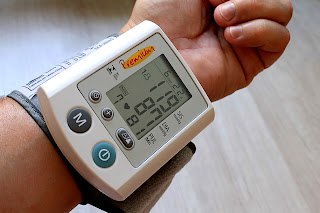How weight loss can reverse high blood pressure:
High blood pressure, also known as hypertension, is a common health condition affecting millions of people around the world. It is often referred to as a "silent killer" because it usually has no noticeable symptoms, yet it can lead to serious health complications such as heart attack, stroke, and kidney damage. One of the primary risk factors for high blood pressure is being overweight or obese. Excess weight puts extra strain on the heart and blood vessels, which can lead to increased blood pressure levels. Fortunately, weight loss has been shown to be an effective way to reduce blood pressure and improve overall health.
Decreased pressure on the heart and blood vessels:
When a person loses weight, there is less pressure on the heart and blood vessels, which helps to reduce blood pressure levels. The heart doesn't have to work as hard to pump blood throughout the body, and the blood vessels are not under as much strain.
Reduction in inflammation:
Carrying excess weight can lead to chronic inflammation, which can contribute to high blood pressure. Losing weight can help to reduce inflammation levels in the body, leading to a decrease in blood pressure.
Improved insulin sensitivity:
Obesity and high blood pressure are often associated with insulin Resistance. When a person loses weight, their body becomes more sensitive to insulin, which can help to regulate blood sugar levels and reduce blood pressure.
Reduced risk of sleep apnea:
Sleep apnea is a sleep disorder that is commonly associated with obesity and high blood pressure. Losing weight can help to reduce the risk of sleep apnea, which can in turn lower blood pressure levels.
Lowered levels of stress hormones:
Excess weight can lead to higher levels of stress hormones such as cortisol, which can contribute to high blood pressure. Losing weight can help to reduce these stress hormone levels, leading to a decrease in blood pressure.
Overall, weight loss can be an effective way to reduce blood pressure levels and improve overall health. However, it's important to remember that weight loss should be done in a healthy and sustainable way.
Crash diets or extreme weight loss methods can actually be harmful to health and may not lead to long-term weight loss success. A healthy weight loss plan should include a balanced diet that is rich in whole foods such as fruits, vegetables, whole grains, lean protein, and healthy fats. It should also include regular exercise, which can help to boost weight loss efforts and improve overall health. In conclusion, weight loss can definitely help to reverse high blood pressure. By reducing pressure on the heart and blood vessels, decreasing inflammation, improving insulin sensitivity, reducing the risk of sleep apnea, and lowering levels of stress hormones, weight loss can lead to significant improvements in blood pressure levels and overall health. However, it's important to remember that weight loss should be done in a healthy and sustainable way, with a focus on long-term success.

Comments
Post a Comment
please do not enter any sampling in the comment box